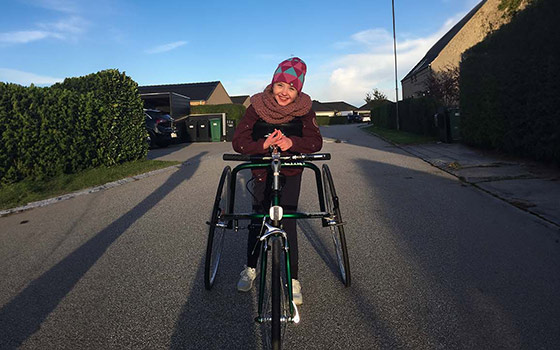Search

We aim to ensure that high quality outcome measures are available to evaluate treatments and services for children with disability rigorously. We aim to translate our research into resources to support families, carers and clinicians.

Research
The Sibling ProjectThe Sibling Project focuses on the wellbeing, relationships and needs of children, adolescents and emerging adults who have a sibling with a developmental disability.

Developmental and epileptic encephalopathy (DEE) conditions are rare, and most have a genetic cause.

Research
Adapting a measure of gross motor skills for individuals with CDKL5 deficiency disorder: A psychometric studyValidated measures capable of demonstrating meaningful interventional change in the CDKL5 deficiency disorder (CDD) are lacking. The study objective was to modify the Rett Syndrome Gross Motor Scale (RSGMS) and evaluate its psychometric properties for individuals with CDD.
Research
Down syndrome or Rett syndrome in the family: Parental reflections on sibling experienceSiblings of children with intellectual disability have unique family experiences, varying by type of disability.
Research
Genotype and sleep independently predict mental health in Rett syndrome: An observational studyRett syndrome is a genetically caused neurodevelopmental disorder associated with severe impairments and complex comorbidities. This study examined predictors of anxiety and depression in Rett syndrome, including genotype.
Research
Can telehealth increase physical activity in individuals with Rett syndrome? A multicentre randomized controlled trialTo evaluate the effects of a physical activity programme on sedentary behaviour and physical activity in ambulant individuals with Rett syndrome.
Research
Enablers and barriers in dental attendance in Rett syndrome: an international observational studyIntellectual and developmental disabilities are heterogeneous in aetiology and presentation, and one cannot make assumptions about the oral health barriers of those with Rett syndrome (RTT) based on findings from generic studies. This study investigated caregivers' perceptions regarding access to dental care for those with RTT, and associations of dental treatments received by those with RTT with their caregivers' perceived value of oral health and perception of their own as well as their daughter's dental anxiety.
Research
Improving clinical trial readiness to accelerate development of new therapeutics for Rett syndromeRett syndrome is associated with severe functional impairments and many comorbidities, each in urgent need of treatments. Mutations in the MECP2 gene were identified as causing Rett syndrome in 1999. Over the past 20 years there has been an abundance of preclinical research with some studies leading to human clinical trials.
